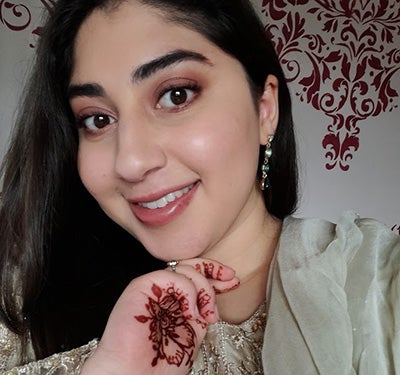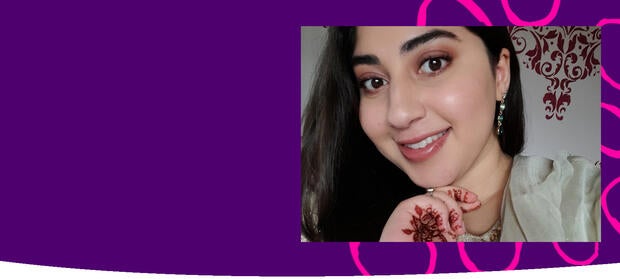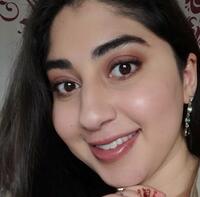Eid is a special time for Muslims, as it is a time to celebrate, encourage joy, togetherness and
community
 A community is the people and places in an area.
with family and loved ones. Eid is an Arabic word and it means ‘celebration’ or festival’.
A community is the people and places in an area.
with family and loved ones. Eid is an Arabic word and it means ‘celebration’ or festival’.
This year Eid ul-Fitr is likely to take place on Wednesday 10th April 2024, depending on the sighting of the moon. The Islamic Calendar follows the movement of the moon, so the dates can change from year to year.
There are two Eids in Islam - one after Ramadan and one a few months after to celebrate Abraham’s commitment to God.
Eid ul-Fitr marks the end of the month of Ramadan, a period of a month long of fasting from dawn to dusk, for Muslims around the world. Eid ul-Fitr celebrates that by being patient we can earn great rewards, as Ramadan can be physically tough for some Muslims, from hunger, thirst and lack of sleep due to long night prayers.
Unlike the Gregorian calendar we use today, the Islamic calendar is based on the moon cycle. Sighting for a crescent moon determines the end of the month-long period of Ramadan and the beginning of Eid.
This is often a bit funny or awkward when someone asks you “when’s Eid?” and I have to say “It depends on when we sight the moon!” It’s not great for booking annual leave in advance!
In many Muslim countries, the celebrations of Eid ul-Fitr can last for up to three days. A typical Eid day for me starts with something sweet to eat in the morning. There are lots of different traditional sweets like Baklava or Mitai, but I like to have one of the milk based dishes like Kheer, Rasmali and Vermicelli. This is then followed by Eid prayers in the mosque early in the morning.
If you ever go to Eid prayers, you’ll know, the mosque gets really full and really busy, so it’s usually difficult to find an empty spot in the line to pray! It’s nice when this happens actually, because it joins Muslims together in the unity of celebration and worship and it creates a feeling of togetherness.
After that, people usually get together with friends, family and loved ones, all dressed up in either new or their best clothes if you cannot afford to buy new clothes. If you can afford to, people give gifts and cook food for each other.
Many people wear traditional cultural clothing but you can wear anything else, as long as it’s new or your best; often people go for bright and festive colours. In some traditions it’s popular for women to apply henna, or mehndi the night before, so you’ll see people have their hands adorned and decorated on Eid day! Eid is also a day encouraged to smell your best... So dab on that extra bit of perfume or cologne!

Jameela celebrating Eid in 2023
Eid ul-Fitr is a time to appreciate and enjoy the blessings Muslims believe God has given us, as well as remembering those less fortunate who may not have the means to celebrate the holy occasion. It’s also a great time for increased worship and devotion to God, as we show happiness and gratitude to Him.
A big part of Eid day is paying Zakat al-Fitr. Zakat al Fitr is a charitable donation of food or money that must be given before Eid prayer, before the end of the month of Ramadan, for the love of God. Zakat al-Fitr is compulsory on every adult who has the means to give charity and to also give on behalf of themselves and their dependants.
Some of my favourite moments of Eid have been catching up with my friends and cousins in our best clothes, eating great food and laughing so hard. Don’t forget to wish your Muslim friends Eid Mubarak or a Happy Eid, it’ll put a big smile on their face!

 Jameela Khan
Jameela Khan